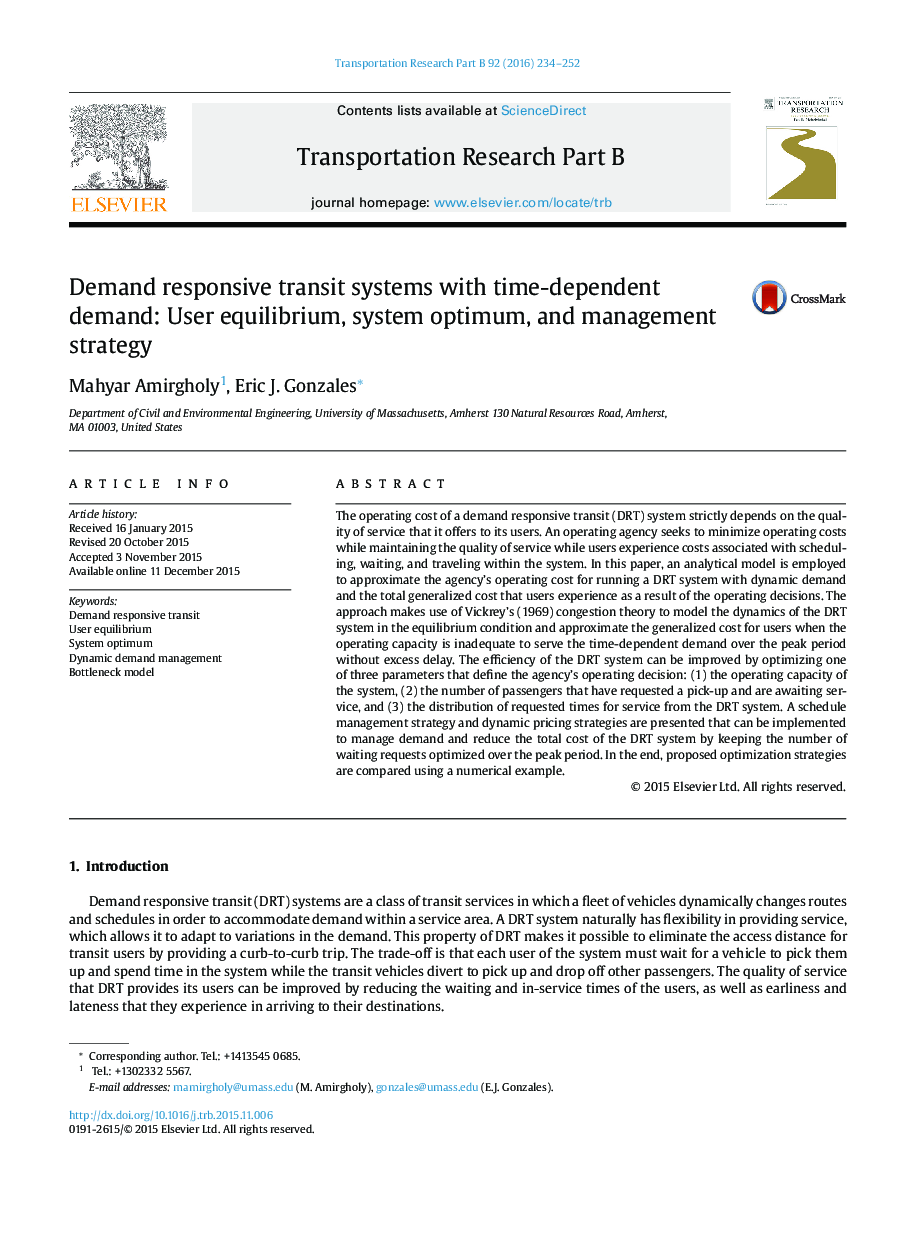| کد مقاله | کد نشریه | سال انتشار | مقاله انگلیسی | نسخه تمام متن |
|---|---|---|---|---|
| 5127136 | 1378544 | 2016 | 19 صفحه PDF | دانلود رایگان |
- Analytical model for agency cost of demand responsive transit (DRT) operations.
- User cost for DRT includes waiting for pick-up, travel time, and schedule penalty.
- Total cost minimized by changing capacity, waiting users, and demand distribution.
- User equilibrium, system optimum, and demand management strategies are identified.
- Dynamics of DRT operations differ from bottleneck but optimal prices are the same.
The operating cost of a demand responsive transit (DRT) system strictly depends on the quality of service that it offers to its users. An operating agency seeks to minimize operating costs while maintaining the quality of service while users experience costs associated with scheduling, waiting, and traveling within the system. In this paper, an analytical model is employed to approximate the agency's operating cost for running a DRT system with dynamic demand and the total generalized cost that users experience as a result of the operating decisions. The approach makes use of Vickrey's (1969) congestion theory to model the dynamics of the DRT system in the equilibrium condition and approximate the generalized cost for users when the operating capacity is inadequate to serve the time-dependent demand over the peak period without excess delay. The efficiency of the DRT system can be improved by optimizing one of three parameters that define the agency's operating decision: (1) the operating capacity of the system, (2) the number of passengers that have requested a pick-up and are awaiting service, and (3) the distribution of requested times for service from the DRT system. A schedule management strategy and dynamic pricing strategies are presented that can be implemented to manage demand and reduce the total cost of the DRT system by keeping the number of waiting requests optimized over the peak period. In the end, proposed optimization strategies are compared using a numerical example.
Journal: Transportation Research Part B: Methodological - Volume 92, Part B, October 2016, Pages 234-252
